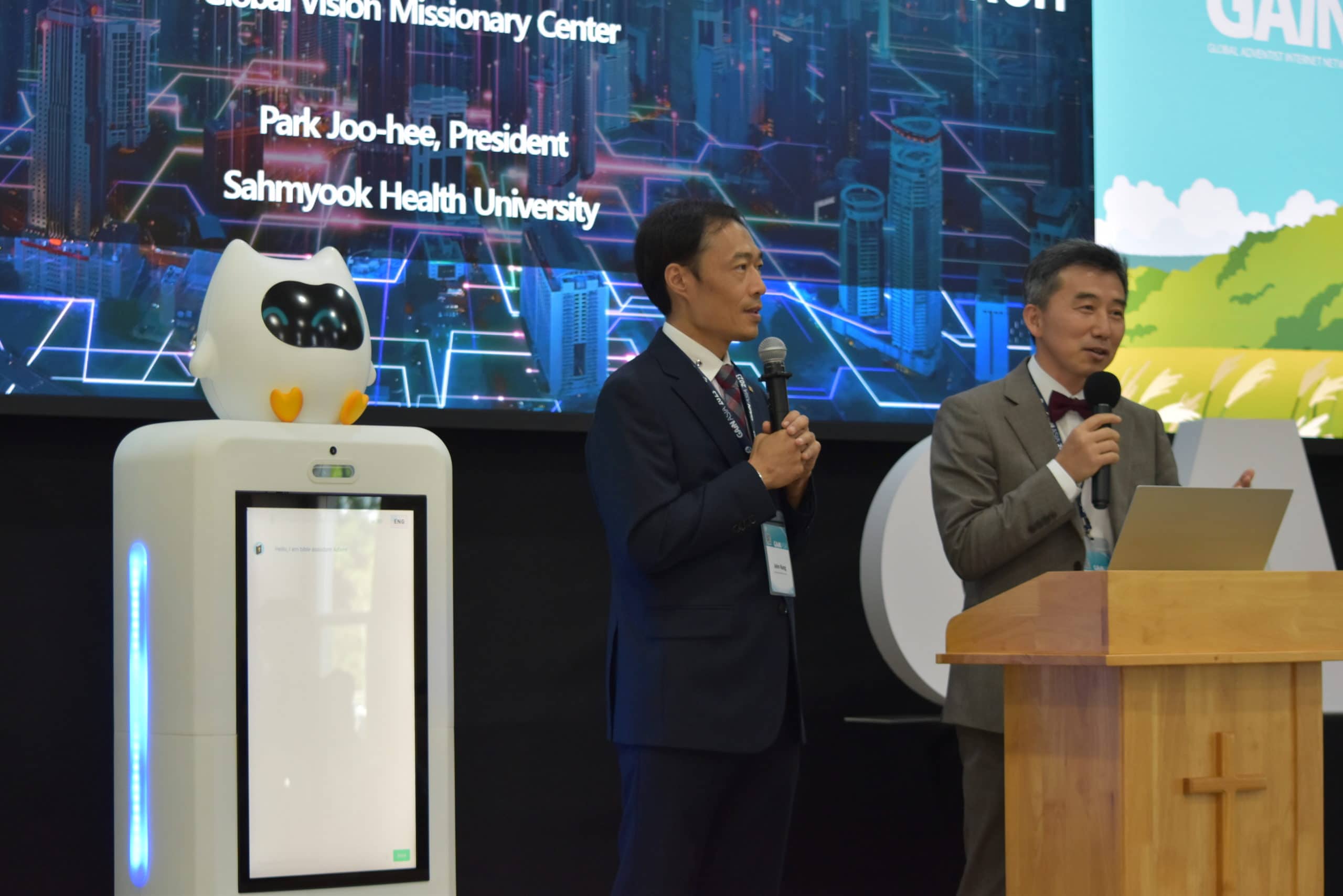
“How should we, at Seventh-day Adventist schools, prepare for the future?” Joo-hee Park, president of Sahmyook Health University, asked at the beginning of his presentation at the Global Adventist Internet Network (GAiN) Asia conference in Jeju Island, Korea, on September 15. “How do we make people come to our churches and schools?”
In the next few minutes, Park, an Adventist church elder who has a doctoral degree in engineering and taught medical information systems for 21 years, shared a project that as leaders of the Seventh-day Adventist Church, he said, “we should give deep thoughts and provide answers to.”
Park explained that it’s not easy to predict the future. “But the whole world has already made decisions regarding digital technology,” he said. “World governments and global corporations have made their choices and decisions.”
He reminded his audience that this is a world where anyone can join and plug in and communicate with others and function together. “They can worship together, they can communicate with one another, they can counsel one another, and they can play together,” Park said.
Against that background, Park explained that in this world of transformation, he has been working on a metaverse platform which he defined as “the first trial in the world.” He added, “The challenge is now, How we will use this, what kind of building we will build up there, what kind of worship we will practice in this platform, and in what ways we will have evangelistic meetings?”
The rationale for this push is obvious, according to Park. “New generations of children are getting used to VR [virtual reality], and they toy with AI [artificial intelligence]. Our challenge is now how to bring those new generations into the church. And if we don’t experience it before them, we cannot introduce it to them,” he said.
Park invited attendees of the GAiN Asia conference to visit the Adventist-managed Sahmyook Health University to experience firsthand all the VR features.
The meta-church Park created — a network of 3D virtual worlds focused on connection — opened just one week before the GAiN conference, he reported.
“We set up a place we called Global Vision Missionary Center, where we will run studies with individual congregations. So, if you come back to our university campus in a couple of years, you will be able to see the results of our pilot run,” Park shared. He added that he brought 64 universities in South Korea together and put them in one platform called Metaversity 2.0. “There are professors giving lectures through this platform. It was the first metaverse lecture — first in Korea, first in the world,” according to Park.
He shared that for his installation as the new university president in July, the ceremony was livestreamed through this platform. “So, all the alumni of our school were able to follow the installation ceremony if they wanted to,” Park said. “Within this metaverse world, the plan is to have other buildings and local churches built into our metaverse platform.”
Park explained that this is still a very expensive technology, beyond the reach of a local church. “That’s why we must work together. Somewhere in the world, someone has to start producing VR content and make it available to all the world,” Park said. “And this is something we can achieve if we work together. For instance, what could happen if we could create content on the creation days in VR? There are churches from other faiths which are already doing that. Just another reason why we must put these materials together. And at Sahmyook Health University, we are doing exactly that.”
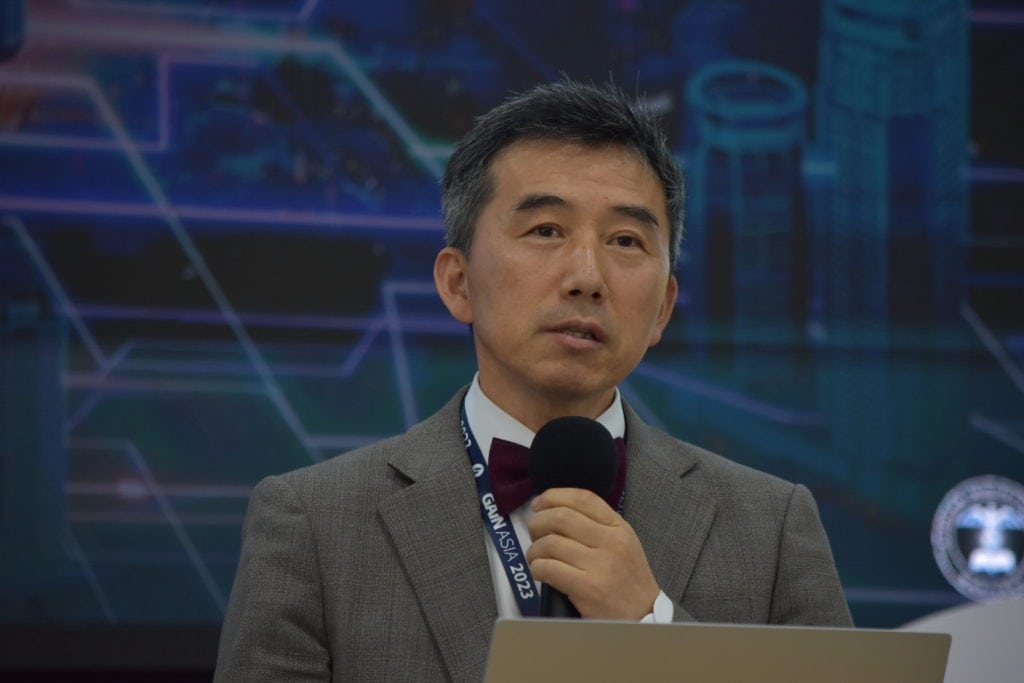
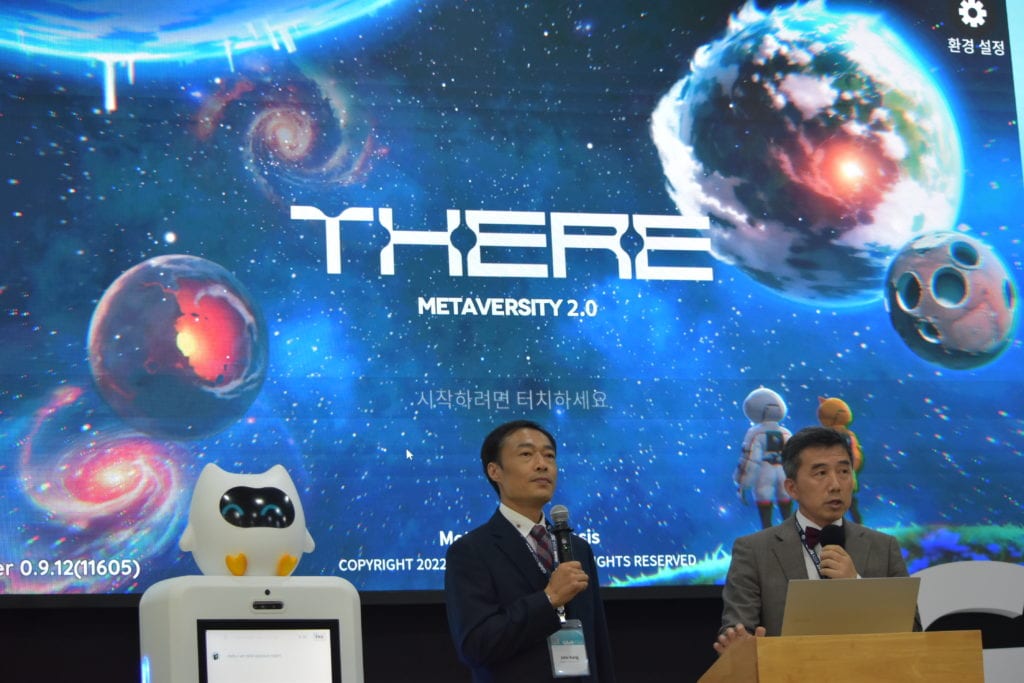
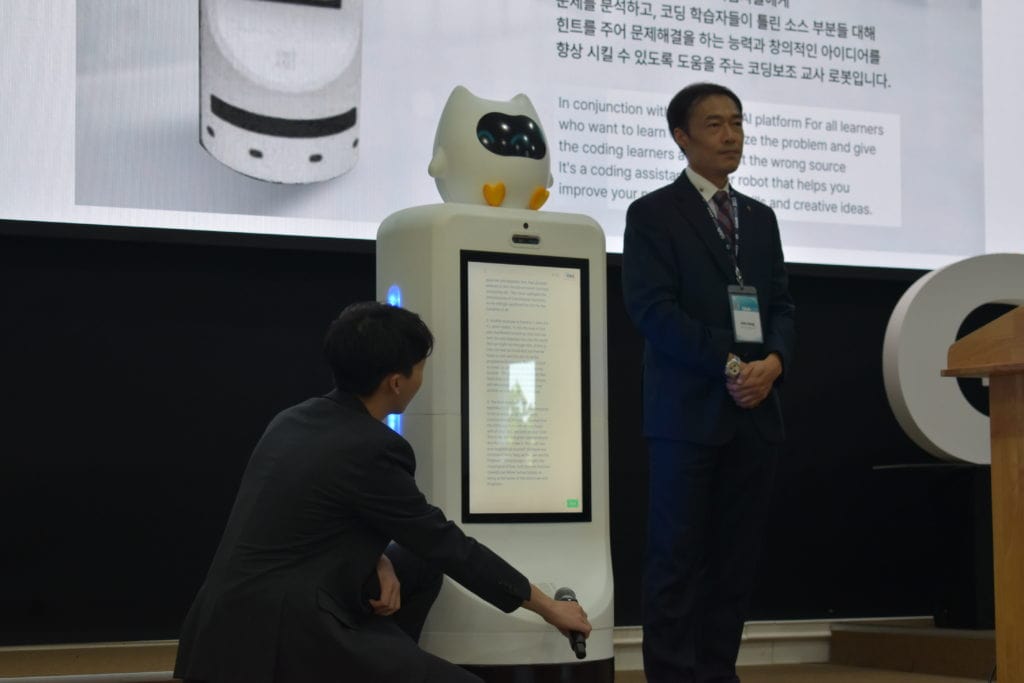
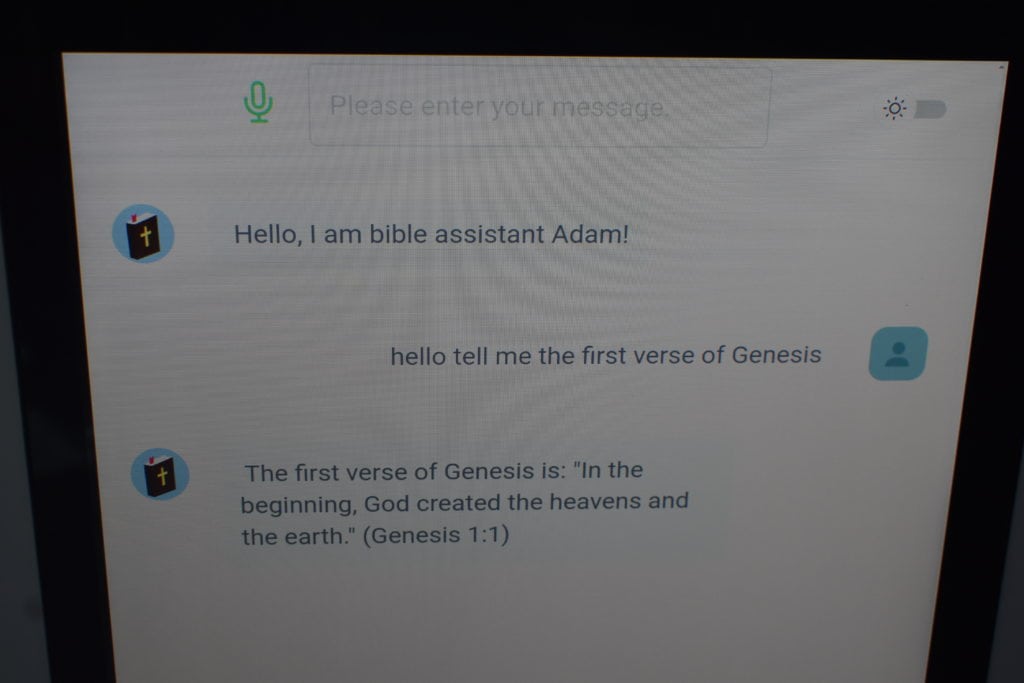
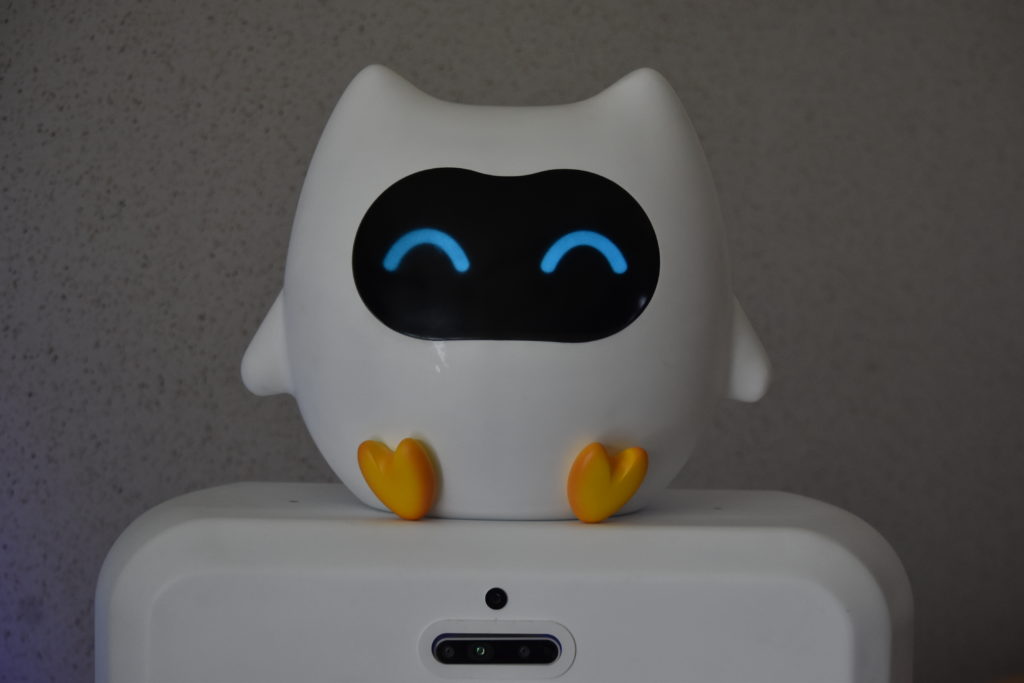
An AI Robot
Park then introduced Adam, an AI robot that can serve as a Bible instructor assistant. Park says he named the robot Adam after the Sahmyook Health University digital strategy, which he has named “Digital Eden.”
He explained that he has tried this second-generation robot for some time now. “I made this robot learn the Bible,” he said, “including the 28 fundamental beliefs of our church in several languages.”
Park explained that Adam can learn every doctrine and belief, because he is programmed to do so. To test him, Park asked the robot if he could share one representative Bible verse that talks about love. A few seconds later, Adam “recited” John 3:16 — “For God so loved the world, that He gave His only Son.” Then he added, with what participants considered “a very realistic human voice,” “This verse highlights the immense love of God for humanity.”
“If you ask more questions, you can see what level AI has reached,” Park said.
Park emphasized there is an important caveat. With AI, “there is a possibility to misinform,” he said, “because robots will trust what AI says. When AI robots like this one become available all over the world, we must make sure that he has been trained to teach our fundamental beliefs and present it in the right way. It is a mission that we have for the future, to learn how to use it and ask the robot the right questions.”
He explained that currently, the most famous lecture in Korea is one that attempts to explain how to make the right props so it becomes possible to maximize the robot’s use. The way you ask the questions will certainly affect the answers you get, Park said. “To prepare for the future, it is essential to get trained to learn how to ask those questions,” he said.
Park shared that a few days after his presentation, the robot would be taken to his office at Sahmyook Health University. “I will spend the next year training him,” Park said. “So, when students eventually ask questions of Adam, he will answer based on the training that I’m planning to give him.”
He added, “If you come to our university in a year, this robot will give you a tour of our campus. Adam will also work as a campus guard. He will be able to work 24/7 and will always be kind.”
Park also announced that the idea is that every student gets a small robot, which may answer the questions they might eventually have. “Right now, Adam is not fully ready, and [what I’m sharing] might sound like something that will happen in the distant future, but this will be around sooner than you imagine.”
“I know that all of you are leaders and specialists in certain areas,” Park said. “Let us work together and study how we can make this happen.”